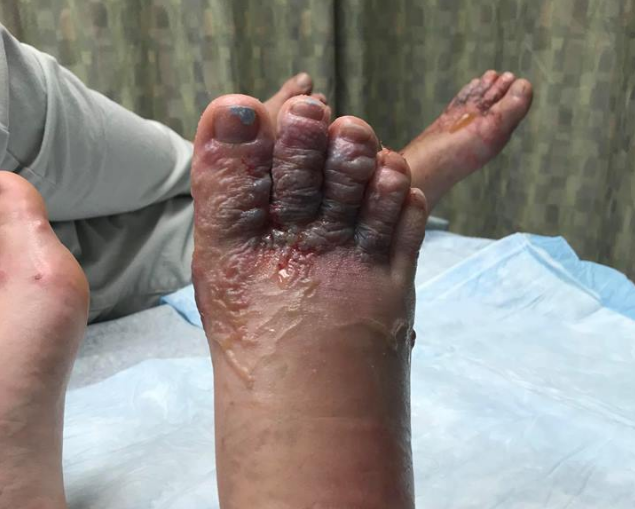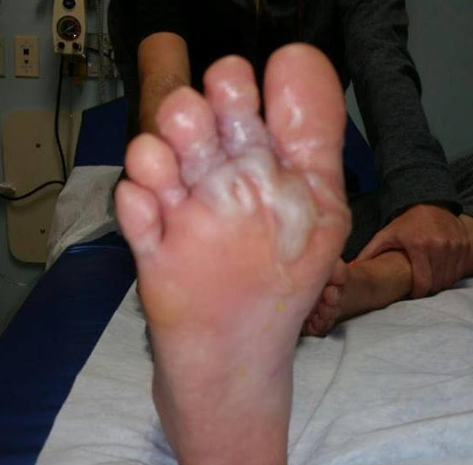Couple’s romantic holiday ruined by hookworm parasites that caused their feet to swell with boils
Trip to the Dominican Republic was blighted by the itchy incident

A couple from Canada’s holiday to the Dominican Republic was wrecked after they picked up parasites on their feet.
Katie Stephens, 22, and Eddie Zytner, 25, found their feet were “incredibly itchy” following a stroll on the beach at their four-star resort in Punta Cana.
At first the pair assumed it must be sand fleas, which they had been warned about. However, it turned out to be hookworms, or larva migrans, which caused their feet to swell up and boils to develop.
Stephens wrote a post warning people about the unpleasant experience on Facebook after they were incorrectly diagnosed by two different doctors.
“To anybody travelling somewhere tropical, please be careful when in the sand and wear shoes!” she said. “If your feet become incredibly itchy please get it checked out right away since we simply thought it was just bug bites and it became worse as each day passed.”

A third doctor correctly identified the problem as worms, having seen a similar case before, and prescribed ivermectin, which is used to kill all kinds of parasites including head lice and scabies.
However, Canada’s national public health department, Health Canada, denied the medication request as it is not licensed in Canada.
Stephens’ mother had to drive over the Canadian-US border to Detroit in order to pick up the ivermectin they needed.

“We want to make it known to more doctors what it is and what to look for, because it took us a few trips to the hospital to find out what it was,” Zytner told CTV News.
Hookworms are a type of intestinal parasite, and infection can result in abdominal pain, diarrhoea, weight loss and fatigue, as well as an itchy rash on the skin.
One of the most common way of contracting them is by walking barefoot in warm climates where sanitation is poor.
Outbreaks are most common in Africa and east Asian countries including Indonesia, Thailand and Vietnam. The Dominican Republic only has an average of 10 to 15 cases reported each year.
Join our commenting forum
Join thought-provoking conversations, follow other Independent readers and see their replies
Comments